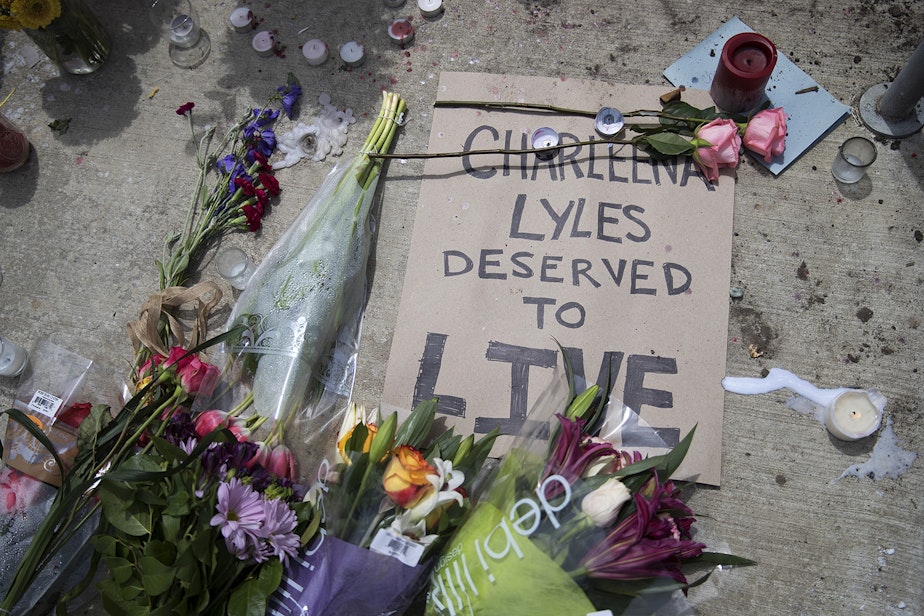Despite police objections, state Supreme Court gives thumbs up to revamped King County inquests

The Washington Supreme Court issued a unanimous ruling Thursday allowing King County’s inquest juries to consider whether police officers followed their policies and trainings when they use deadly force.
Dozens of inquests have been on hold ever since objections were raised when King County tried to broaden the scope of such investigations in 2018. Now, the court has endorsed the changes that families of people killed by police have been seeking.
The decision paves the way for inquests to proceed, including in the case of Charleena Lyles, who was killed by Seattle police in 2017. Tonya Isabell is Lyles’ cousin.
She said the court "made a decision based on the needs of families, and people affected by this. So the only thing I can say right now is, it’s been a long fight but I’m excited, and I’m just joyful right now.”
La Rond Baker with King County’s Department of Public Defense said in this ruling families received “full relief” from the court.
“We were very excited, no family wants to have to be involved in an inquest, but if you’re going to be involved in an inquest you want it to be as thorough as possible, you want to have faith in that," Baker said.
She represents the family of Damarius Butts who was killed by Seattle Police in 2017. Baker said the inquest in his death could take place by the end of this year.
The state supreme court ruling holds that officers involved in someone’s death can be compelled to testify at inquests, and that inquest jurors may consider whether the officers involved acted with “criminal means.”
Baker said that finding by the inquest jury has no binding impact on the officer but it could have "a persuasive impact."
"Essentially it means the [inquest] jury gets to determine whether or not they think criminal conduct occurred in the use of deadly force. So it's not a finding of criminal liability," she said. "It's an entirely separate process. But it is one that potentially a prosecutor could look at and make a different decision about their own charging decisions."
Inquests are administrative hearings held in King County whenever someone dies in custody or at the hands of law enforcement. Jurors hear evidence on the cause and manner of the person’s death.
Executive Dow Constantine proposed changes to the process in 2018 to allow evidence on whether officers followed policies and training. His changes came after families, and a review committee, objected that the traditional inquest process was overly narrow and favored law enforcement.
Local cities, members of law enforcement, and three families of people killed by police (including the families of Charleena Lyles, Damarius Butts and Isaiah Obet who was killed by Auburn police officer Jeffrey Nelson) sued over Constantine’s proposed changes. Dozens more inquests have been on hold since then.
Sponsored
Last year a King County Superior Court judge ruled that Constantine had overstepped his authority and threw out most of the proposed changes. The Washington Supreme Court then agreed to hear the case on direct appeal. Attorneys for police officers argued in a supreme court brief that officers believe in the importance of inquests, but think Constantine's proposed changes have "stacked the deck against them."
They argued that being compelled to testify at inquests is a violation of the officers’ Fifth Amendment right to avoid self-incrimination. The court responded that officers can refuse to answer specific questions, and their attorneys will be on hand to assist them in that, but they are not immune from testifying entirely.
The court also ruled that King County may make the inquest process "accessible to the public, including by livestreaming." Lyles' family members said they favored livestreaming so that everyone concerned with the case could see the proceedings. Attorney La Rond Baker said attorneys could have concerns about livestreaming sensitive information including photographs. The ruling said inquest administrator has so far permitted recording and photography at upcoming inquests, "with some exceptions for juror and party privacy."




